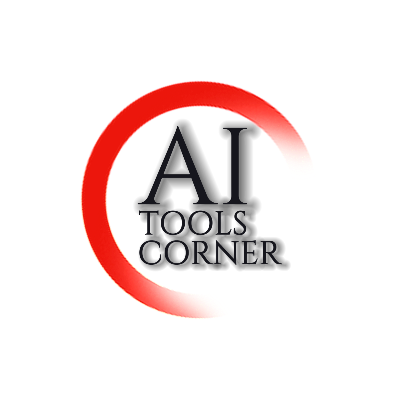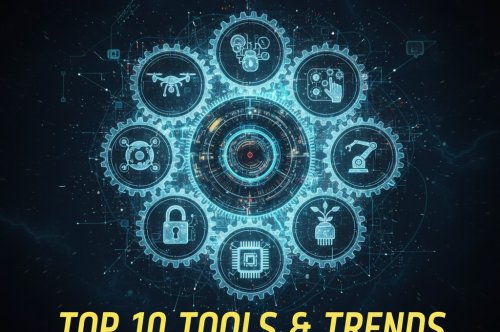Critical Ethical Considerations in AI Tool Development (2026 Guide)

Updated: Refreshed for 2026 with clearer recommendations and latest relevance.
Introduction
To use AI gadgets, one must be aware of the ethical implications of their development and usage. Responsible AI development requires much thought about its effects on society, individuals, and privacy. Here are some top ethical considerations you should keep in mind:
1. Fairness and Bias
AI tools are only as neutral as the data they were trained upon. It is essential to ensure that AI model-building datasets are heterogeneous and inclusive of the populations affected by them. Further, it is necessary to identify algorithm biases, not to perpetuate systemic inequalities.
2. Privacy and Data Protection
Large amounts of personal data are often required for AI tools. When organizations want to protect people's privacy, they need robust data protection measures and informed consent from individuals. This data collection can be done through techniques such as anonymization or encryption, which hide sensitive information.
3. Transparency and Explainability
AI systems should provide transparent explanations for their processes and decisions. Users should know how the tool came up with a particular outcome (how it operated). This transparency creates trust among users, enhancing their ability to gauge reliability and potential biases.
4. Accountability and Responsibility
Developers of AI tools ought to take responsibility for what they have made. Organizations should define accountability chains clearly, which will lead them to ensure that these devices abide by both legal and moral rules. They also must monitor for unintended consequences to address them promptly.
5. Human Oversight and Control
Even though tasks can be automated using AI tools while making decision-making processes better, human supervision remains vital. People should have control over critical choices where Artificial Intelligence will become an enabler instead of replacing human judgment.
6. Ethical Decision-Making Frameworks
Organizations must develop ethical decision-making frameworks to guide the design and deployment of AI systems in practice. These frameworks help ensure alignment with moral principles throughout the lifecycle when developing artificial intelligence models.
These ethical considerations can guide the organizations' responsible development and use of AI tools. This approach helps to promote fairness, privacy, transparency, and accountability in AI development, ultimately leading to the creation of AI that benefits society at large. Developers, users, and policymakers, therefore, need to continue having dialogues on ethical concerns and shaping a responsible future for artificial intelligence as it develops.
Conclusion
It is essential to have skills and knowledge in AI to develop AI tools that work well with an existing business. This involves keeping updated with the latest trends in the technology and understanding ethical issues surrounding their development and deployment.
With the right expertise in AI and a holistic approach to it, businesses can unlock limitless possibilities through these transformational tools. Embrace the power of artificial intelligence (AI) and embark on a journey of innovation and success today because we live in a data-driven world.
FAQs
Q: How do artificial intelligence (AI) tools differ from traditional software tools?
Artificial intelligence (AI) tools differ from traditional software because they can learn, adapt, and make decisions without explicit programming. Unlike AI tools, traditional software follows a set of predefined instructions for doing things, but AI can analyze vast amounts of data to analyze patterns and make predictions based on them. This makes it possible for AI tools to process intricate and unstructured information, such as natural language and image recognition, which is too complicated for any traditional tool.
Q: What are the most important ethical issues regarding the development and use of AI tools?
The development and use of AI tools bring about critical ethical considerations that need to be addressed. One key consideration is fairness and bias. In this context, developers should ensure that their AI systems are trained on data sets that represent different populations so as not to perpetuate prejudice. Privacy, too, remains an issue, with many intelligent systems needing personal data access. It is crucial to manage this information responsibly and securely.
Transparency is also vital because users should know how these AI algorithms operate, what kind of data they consume, and how those outputs might affect them. Moreover, responsibility must be assigned for any results produced by artificial intelligence.
Q: How can AI Tools Drive Innovation And Improve Decision Making Processes?
It's believed that artificial intelligent devices have great potential to boost innovation and help in decision-making processes in different ways. By evaluating vast data sets and thereby identifying patterns, these products provide useful insights and predictions applied strategically to decision-making processes at the firm level. They automate routine jobs, leaving humans focused on more complicated creative problem-solving tasks.
AI tools may improve customer experience by providing personal recommendations, faster response times when delivering answers, and more accurate solutions tailored precisely to customers' needs. Similarly, within the R&D context, new product discovery can become faster using AIs; process optimization becomes easier, while insightful hidden parts are revealed easily through employing AI tools.
Q: What are some applications of AI tools in different sectors?
Practical applications for intelligent systems are available across a variety of industries. These programs allow doctors to detect and diagnose diseases, predict treatment outcomes, and deliver better patient healthcare in the medical field. The finance industry can also use them to detect fraud, assess risk, or create complex computer models for algorithmic trading.
These products help optimize production processes, identify anomalies, and forecast maintenance needs in manufacturing. The marketing department relies on such algorithms in consumer behavior analysis, content personalization, and advertisement campaign optimization.
These examples are just a tiny fraction of potential uses for AI tools within various industries; they change how companies work in a way that brings innovative solutions.
This is just the beginning of what AI tools can do, and their capabilities are developing at an incredible pace. You must remain up-to-date with new developments so that you can benefit from this transformative technology.
SEO Refresh 2026: Key Improvements
- Better intent matching for search queries
- Stronger comparisons and decision help
- Improved on-page structure
Related Reads
FAQ
Why update old posts?
Freshness and improved structure can increase rankings and click-through rates.






